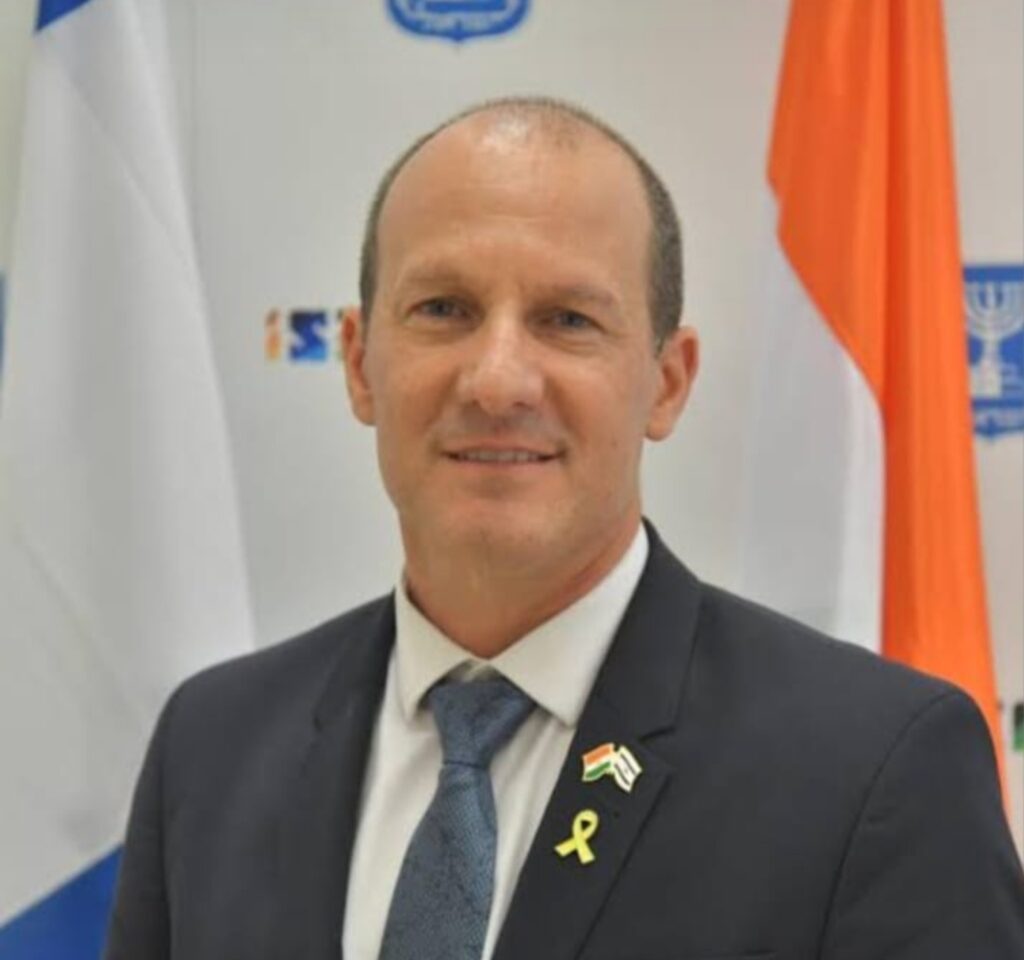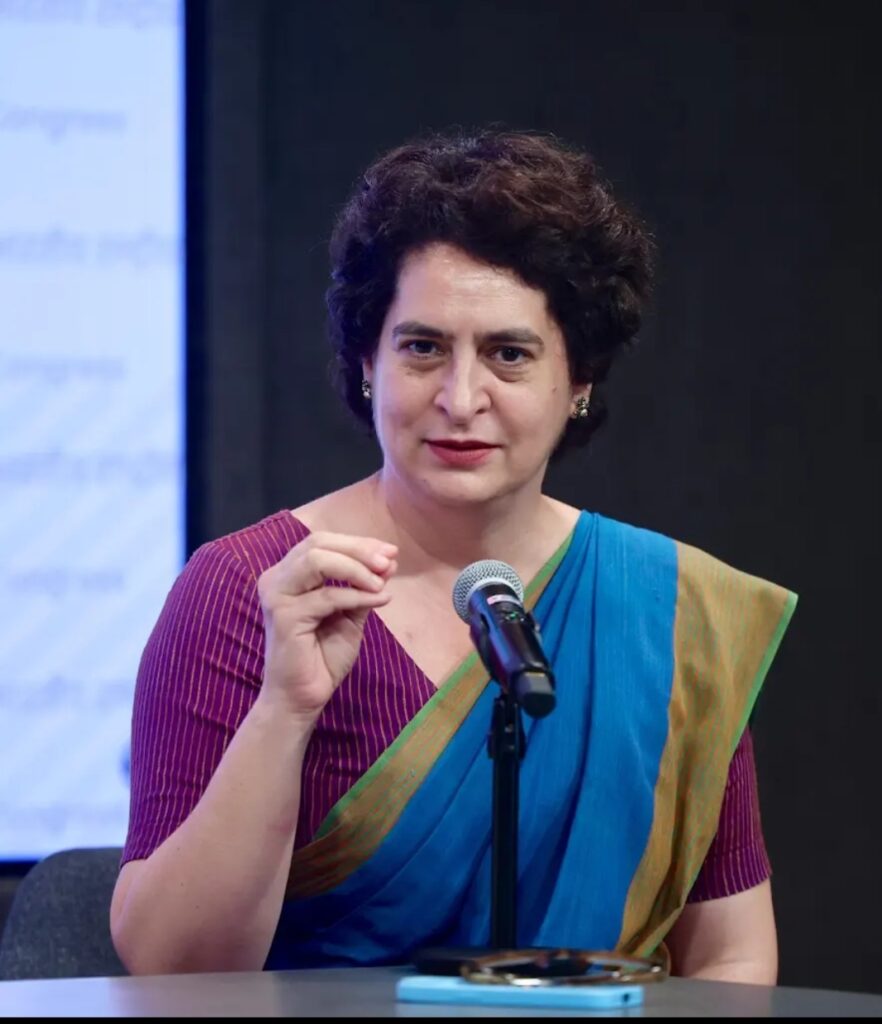

Diplomatic Sparks Fly: Israel’s Envoy Accuses Indian MP of ‘Deceit’ Amid Gaza Atrocity Debates
A Social Media Storm Ignites Bilateral Tensions
In a rare public confrontation between a foreign diplomat and an Indian parliamentarian, Israel’s Ambassador to India, Reuven Azar, sharply rebuked Congress MP Priyanka Gandhi Vadra for her scathing critique of Israel’s military operations in Gaza. Gandhi’s post on X, formerly Twitter, decried the August 10, 2025, airstrike that killed five Al Jazeera journalists near Gaza City’s Al-Shifa Hospital as part of a broader “genocide” that has claimed over 60,000 Palestinian lives, including more than 18,000 children, while starving millions.
Azar swiftly countered, branding her statements “shameful deceit” and attributing civilian casualties to Hamas’s tactics, while touting Israel’s aid efforts and dismissing casualty figures as unreliable “Hamas numbers.”
This exchange, unfolding on August 12, 2025, has escalated into a diplomatic row, with the Indian National Congress condemning Azar’s language as “totally unacceptable” and accusing the Modi government of “extreme moral cowardice” for its silence on Gaza’s devastation. Opposition voices, including Shiv Sena leaders, have called for Azar to be declared persona non grata, highlighting concerns over foreign interference in India’s domestic discourse.
The spat underscores the growing friction between India’s strategic ties with Israel—bolstered by defence deals worth billions—and its historical support for Palestinian rights, a stance rooted in non-alignment principles.
As of August 13, 2025, the Ministry of External Affairs has remained tight-lipped, avoiding direct commentary on Azar’s remarks. Yet, the incident reflects broader global unease over the Gaza conflict, now in its 22nd month since Hamas’s October 7, 2023, assault on Israel, which killed 1,200 and took 250 hostages. Israel’s retaliatory campaign has displaced nearly 2 million Palestinians, razed infrastructure, and triggered famine warnings from the UN.
The Tragic Catalyst: Journalists Under Fire
The flashpoint was the targeted strike on a media tent near Al-Shifa Hospital, killing Anas al-Sharif—widely hailed as Gaza’s “voice” for his raw coverage of hunger and destruction—along with four colleagues.
Al Jazeera reported the victims were sheltering in a clearly marked press area when hit. Israel justified the attack by alleging Sharif was a Hamas commander, releasing pre-2021 documents as evidence, but international watchdogs like the Committee to Protect Journalists (CPJ) and UNESCO dismissed these as insufficient, emphasizing journalists’ protected status under the Geneva Conventions unless actively combatant.
This incident fits a grim pattern: Since October 2023, at least 195 journalists have been killed in Gaza, the deadliest conflict for media in modern history, per the International Federation of Journalists. Gaza’s media office tallies 238 deaths, many in apparent targeted strikes. Funerals for the slain Al Jazeera staff drew thousands, with global protests decrying the erosion of press freedom. UNESCO Director-General Audrey Azoulay condemned the killings as “unacceptable,” urging independent probes. Such attacks not only silence critical voices but also obscure the ground truth, as Israel restricts foreign journalists’ access to Gaza, forcing reliance on local reporters like Sharif.
Unpacking the ‘Genocide’ Label: Legal and Moral Dimensions
Gandhi’s use of “genocide” echoes a surging international narrative, backed by UN experts who describe Israel’s actions as an “unfolding genocide” through bombing, blockades, and forced displacement. The term, defined by the 1948 Genocide Convention as acts intended to destroy a group in whole or part, doesn’t require total annihilation—historical precedents like Rwanda show partial targeting suffices.
At the International Court of Justice (ICJ), South Africa’s case against Israel remains active, with the court deeming genocide “plausible” in January 2024 and issuing orders for aid facilitation and evidence preservation. Recent developments include Brazil’s July 2025 intervention, signalling widening support. No final verdict has emerged, but experts predict one by late 2025, amid calls for dismantling Israel’s “humanitarian façade.” Israeli officials’ rhetoric, including references to “erasing” Gaza, has fuelled intent allegations.
Azar’s defence—that Gaza’s population surged 450% over 50 years disproves genocide—misconstrues the concept. Actual data shows growth from 63,444 in 1950 to over 2.3 million in 2024, a roughly 3,500% increase, driven by high birth rates despite hardships. Yet, demographic resilience doesn’t negate current atrocities, as UN reports warn of generational wipe-outs through family killings and malnutrition.
Casualty Counts: Beyond the Numbers Game
Central to the dispute are casualty figures. Gaza’s Health Ministry reports 61,158 deaths by August 6, 2025, mostly civilians, with 73 more killed on August 12 alone. The UN’s OCHA corroborates widespread civilian hits, with 70% of fatalities in homes, disproportionately women and children. Azar’s assertion of 25,000 “Hamas terrorists” eliminated exceeds Israel’s official IDF estimate of 17,000, hinting at inflated claims to mask civilian tolls.
Dismissals of these stats as “Hamas-controlled” overlook validations by WHO, OHCHR, and past U.S. acknowledgments.
Amnesty International critiques Israel’s failure to differentiate combatants, violating humanitarian law in urban warfare.
The Aid Mirage: Restrictions Fuelling Famine
Azar highlighted 2 million tonnes of aid facilitated by Israel, blaming Hamas for shortages. However, UN analyses reveal inflows remain far below pre-war levels, with crossings like Rafah shuttered and inspections causing delays. UNRWA, Gaza’s aid lifeline, faces a five-month import ban on essentials, crippling operations amid Israeli accusations of terrorism ties—claims deemed unproven by independent reviews.
Starvation deaths hit 227 by August 12, including 37 children since July, per UN data.
Over 1,400 Palestinians died seeking food, often under fire near aid sites. Despite “humanitarian pauses,” OCHA reports persistent obstructions, exacerbating a crisis where 2.2 million face acute hunger. Experts urge restoring UN systems to avert mass starvation.
Global Echoes and India’s Balancing Act
Outrage spans continents: The EU, UK, and 24 foreign ministers demand unfettered aid and journalist protections. Editorials worldwide call for independent Gaza access to counter misinformation.
In India, Gandhi’s position resonates with segments critical of Israel’s policies, evoking Nehru’s solidarity with Palestine. Social media buzzes with demands to expel Azar for overstepping diplomatic bounds. Yet, the BJP’s silence aligns with deepening Indo-Israeli ties, including arms imports and tech collaborations. Critics argue this erodes India’s moral voice on global injustices, especially amid parallels to Bangladesh’s Hindu minority plight—though Gandhi has addressed both.
Public figures like socio-political activist Sudheendra Kulkarni lambasted the government’s inaction, calling Azar’s tone “arrogant and disrespectful.” The row tests India’s foreign policy, balancing alliances with ethical imperatives.
Toward Accountability: A Call for Transparency
Gandhi’s intervention isn’t partisan deceit but a moral imperative, urging democracies to confront injustice. Azar’s rebuttal, while defending Israel’s security, sidesteps evidence of disproportionate force and humanitarian breaches. True resolution demands transparency: independent investigations, unrestricted aid, and media access.
As Gaza teeters on collapse, with families “wiped out” and a generation scarred, the world—and India—must prioritize humanity over geopolitics. Silence risks complicity; dialogue, even contentious, paves the path to justice.
Hasnain Naqvi is a former member of the history faculty at St. Xavier’s College, Mumbai





